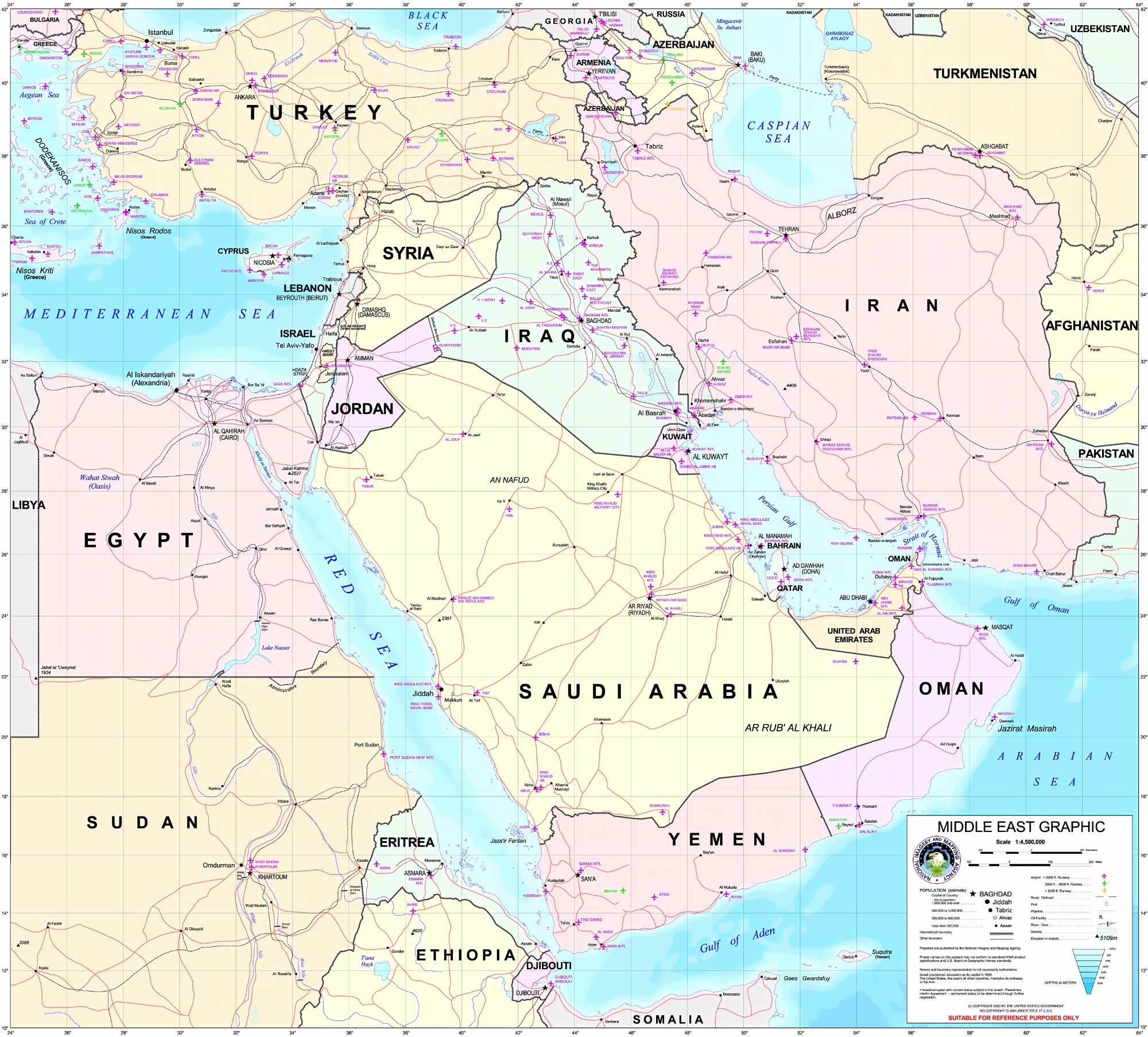The main issue without a doubt is the struggle for regional hegemony between Saudi Arabia and Iran: the leading Sunni power versus the leading Shia power in the world. At the same time, it would be misleading to only call this a confrontation between sects. The enmity between the two countries has made many waves and created a great deal of tension.
Since the triumph of the Islamic Revolution, Iran has had an extremely aggressive foreign policy. Iran is more an oligarchy and the majority within wants change but nothing disruptive. Every political faction is an appendage of the system such as the moderates who play by the rules but at the same time oppose the ultra-conservative, ultra-orthodox apparatchiks of the Regime. Iran’s Revolutionary Guards, Ministry of Intelligence and Revolutionary Committees, make sure that everything stays within the orthodox status quo. This is an aggressive foreign and security policy to expand its influence, and use shia minorities as a weapon of domination and destabilization. Any country, and especially its neighbours, that have been the target of Iran’s expansive policies, see any laxity in diplomacy as unacceptable. This is the essential and central element of the crisis.
Shia minorities in some Gulf countries are an important demographic. In Bahrain, for example, they are the majority. The figures vary widely with little factual accuracy, but in all cases are extremely controversial — an explosive issue used as a political ammunition.


After the Iranian Revolution of 1979, Iran adopted a more aggressive foreign policy based on the sizeable Shia population in the middle east, which it used as leverage whenever it wanted to punish neighbouring countries via wiki commons
In Kuwait the Shia minority ranges from 25% to 35% depending on the source you consult; in Saudi Arabia there are officially between 10 to 15% but number could be as high as 19% — the Iranians say it’s even bigger — there is even a Shia minority in the Sultanate of Oman. If one analyses the crisis closely the presence of these minorities has played an essential role, Kuwait and Oman remained neutral, their need to keep peace at home and at the same time not to irritate either giant of the Gulf is obvious. Bahrain suffered a revolt of its Shia majority agthe against Sunni minority that rules the country and is therefore threatened and it did take sides in this Arab Gulf Nations-Iran crisis by proxy.
The other elements are what is considered as unacceptable support of some Islamist movements by Qatar, and the presence of some very fiery TV-Imams like the Egyptian pro-yihadist Yusuf al-Qaradawi, who’s program in Al-Jazeera is considered incendiary around the world both in the West and by a majority of Arab Governments. The editorial line of Al-Jazeera is seen by some major actors to be in confrontation with the interests and stability of the majority of the Nations of the regions.
In the eyes of many international observers, Qatar’s foreign policy is too ambitious and bold for a country of its size. They argue that because they are a small country they necessarily need to be in good terms with all the regional actors including Iran. Qatar infuriated its neighbours when it acknowledged Iran as a major power, a statement that was considered an affront to its neighbours. One could agree that Iran has acted aggressively and has used its sizeable forces and the Shia minorities to defy and destabilise its rivals, but that fact that Qatar recognised it as a major player is an obvious reality even if you may not like it. The fact is that any kind of attitude or policies that are in any way seen as lenient, soft or compliant with Iran, are regarded as treason and collusion with the enemy.
How can this explosive situation be defused? Some important steps towards mediation have been taken. The Kuwaitis, used as couriers, presented ‘a list of demands’ made by the bloc led by Saudi Arabia, which have been bluntly rejected by Qatar, on the grounds that they are excessive. Another attempt has been carried out by Morocco’s Foreign Minister Nasser Bourita. The King of Morocco has special significance Sunni world, he is the Commander of the Faithful for all Sunnis who follow the Maliki School, a moderate and traditional school of Sunni Islam. The mediation has been discrete and out of the limelight, which is the only way to make them effective.
The fact is that any kind of attitude or policies that are in any way seen as lenient, soft or compliant with Iran, are regarded as treason and collusion with the enemy.
The list of demands sent to Qatar is steep, but there needs to be a negotiated outcome, this situation, even if it doesn’t escalate to a full-scale blockade or even any kind of military clash, is going to hurt stability in the region, it will weaken the GCC as a major actor in a very explosive environment. The stand-off is already affecting the economies, the aftershocks are affecting global oil and commodity prices, not only the Qataris.
Diplomacy and flexibility are of essence in these times. Severing diplomatic ties with Iran does not seem viable for Qatar, but they need to be much more demanding diplomatically and denounce any meddling that Iran has done in other country’s internal affairs or any attempt to destabilise or commit acts of aggression against its neighbours.
Al-Jazeera should not be shut down, but its editorial line, especially that of the Arabic channel, must move towards a more moderate stance and be neutral and objective in its reporting. Support or leniency to extremists needs to be curbed and condemned so that organisations incompatible with peace, stability, moderation, and Human Rights, do not get any kind of support even if it’s just by means of editorial complacency.
Qatar, on the other hand, is a sovereign Nation, a member of the United Nations and as such deserves respect for its independence and territorial integrity. It is mandatory that dialogue, moderation, caution, prudence and common sense prevail in these bleak times of global uncertainty. An urgent solution is needed, because any little spark can light up a huge wildfire that will consume the entire region.
(The author is the former Ambassador of Spain in India)






